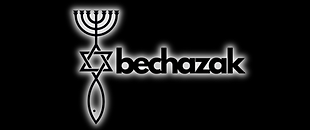The Messiah: A Conversation Between Rabbinic and Messianic Judaism
- Cassidy Sloan
- Apr 28, 2025
- 4 min read

The identity of the Messiah has long been a dividing line between different expressions of the Jewish faith. For over two thousand years, it has fueled debates—and sometimes strained relations—between Jews who hold to traditional Rabbinic teachings and those who follow Messianic Judaism. Traditional Judaism continues to await the Messiah's arrival, while Messianic Jews believe the Messiah has already come in the person of Jesus (Yeshua) and eagerly await His return.
In this post, we'll explore the different expectations of the Messiah in Messianic and Rabbinic Judaism and how each tradition views the Messiahship of Yeshua.
The Messiah in the Tanakh: A Shared Hope
The idea of a coming Messiah isn’t just a New Testament concept. It’s rooted deeply in the Hebrew Scriptures—the Tanakh. Both Messianic and traditional Jewish teachings agree on some key points: for example, that the Messiah would be a descendant of King David (2 Samuel 7:12; Ezekiel 37:24–25, TLV).
Throughout history, Israel has looked for a Redeemer to save them from oppression. Nehemiah once cried out that the people were still slaves in their own land (Nehemiah 9:36), and in the 1st century, Jews under Roman rule felt much the same. They longed for the salvation promised in passages like Isaiah 59:15–20.
Messianic Jews believe additional passages in the Tanakh point directly to Yeshua as the Messiah. One early prophecy is found in Genesis 3:15, where God foretells that Eve’s descendant would crush the serpent’s head—a victory Messianics see fulfilled in Yeshua’s defeat of sin and death on the cross. They also point to Isaiah’s prophecy of a virgin birth (Isaiah 7:14), which Matthew 1:23 references, and to the famous "Suffering Servant" in Isaiah 53, who bears the sins of Israel.
Messianic Judaism: Yeshua is the Messiah
Messianic Judaism boldly affirms that Yeshua is not only the Messiah but also divine. This belief is anchored in how Yeshua referred to Himself as the "Son of Man" (John 3:13; Luke 19:10; Matthew 8:20; Mark 10:45), a title first seen in Daniel 7:13. In Daniel’s vision, the Son of Man receives eternal dominion from the Ancient of Days—a portrayal understood by ancient Israelites as a depiction of a second divine figure, a "second Yahweh" or "second Power in heaven." By using this title, Messianic Jews believe Yeshua was declaring Himself fully human and fully divine (Philippians 2:6–11; Colossians 2:9).
For Messianic believers, Yeshua fulfills the Torah, not abolishing it but calling people back to its heart (Matthew 5:17). He is the One who inaugurated the New Covenant promised by the prophets (Jeremiah 31:31–38; Isaiah 56:6–12). His death, as described in Hebrews 10, was the essential act that launched this covenant—similar to how Moses once led Israel out of physical slavery, Yeshua now leads people out of spiritual slavery (Hebrews 3:1–6; Romans 6).
Rabbinic Jewish Opposition: Why Yeshua is Rejected
Modern Judaism, however, does not accept Yeshua as the Messiah. Many Jewish scholars argue that the prophecies Messianic Jews and Christians claim point to Yeshua have been mistranslated or taken out of context. One of the main debates centers on Isaiah 53. While Messianic Jews see a prophecy of Yeshua's suffering and death, most Jewish interpretations view the "suffering servant" as symbolic of the entire nation of Israel. Even notable commentators like Rashi acknowledge some inconsistencies in this interpretation, but the overall consensus remains firm: Israel itself, not an individual, fulfills this role.
Rabbinic Judaism also stresses that Yeshua did not accomplish key Messianic expectations—such as rebuilding the Temple, restoring the kingdom of David, or leading all Israel to fully obey the Torah. Furthermore, passages like Deuteronomy 6:4 ("Hear, O Israel: The Lord our God, the Lord is one") are seen as a clear rejection of any theology suggesting a Godhead or divine plurality. In contrast, Messianic Jews maintain that belief in a triune God is not polytheism. They argue that understanding God's unity includes the complexity revealed through the Messiah and is consistent with the Shema (Deuteronomy 6:4).
A Shared Hope in God's Promise
While Traditional and Messianic Judaism hold very different views on Yeshua’s identity, they share a profound hope in God's faithfulness. Traditional Judaism believes the Messiah is yet to come, while Messianic Jews await the return of Yeshua. Both traditions are deeply rooted in Scripture and in the expectation that God will redeem His people. Despite disagreements over prophecy and fulfillment, both Rabbinic and Messianic Jews passionately love God and trust that He will keep His promises concerning Israel's future salvation.
Bibliography
Cohn-Sherbok, Dan. Messianic Judaism (London; New York: Continuum, 2000)
Heiser, Michael S., Tery Strickland. “Naked Bible Project Transcript: Episode 365”. February 27th, 2001. Accessed
Heiser, Michael S., “Two Powers in Heaven”. Accessed August 5th, 2023.
Imes, Carmen. Bearing God’s Name: Why Sinai Still Matters (Downer’s Grove, IL: Intervarsity Press, 2019)
Rashi, Isaiah 53. The Complete Jewish Bible with Rashi Commentary. Accessed August 7th, 2023.
Wasserstein, Bernard, Joshua Prawer, Steward H. Perowne. "Jerusalem." Encyclopedia Britannica, Accessed August
Wilson, Marvin R. Our Father Abraham: Jewish Roots of the Christian Faith (Grand Rapids, MI: Erdmans, 1990)
.png)